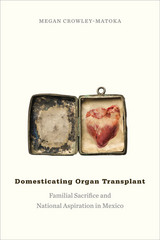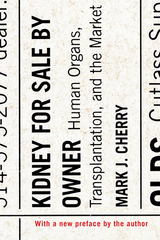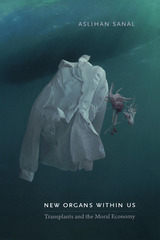

If most Americans accept the notion that the market is the most efficient means to distribute resources, why should body parts be excluded?
Each year thousands of people die waiting for organ transplants. Many of these deaths could have been prevented were it not for the almost universal moral hand-wringing over the concept of selling human organs. Kidney for Sale by Owner, now with a new preface, boldly deconstructs the roadblocks that are standing in the way of restoring health to thousands of people. Author and bioethicist Mark Cherry reasserts the case that health care could be improved and lives saved by introducing a regulated transplant organs market rather than by well-meant, but misguided, prohibitions.

READERS
Browse our collection.
PUBLISHERS
See BiblioVault's publisher services.
STUDENT SERVICES
Files for college accessibility offices.
UChicago Accessibility Resources
home | accessibility | search | about | contact us
BiblioVault ® 2001 - 2024
The University of Chicago Press









